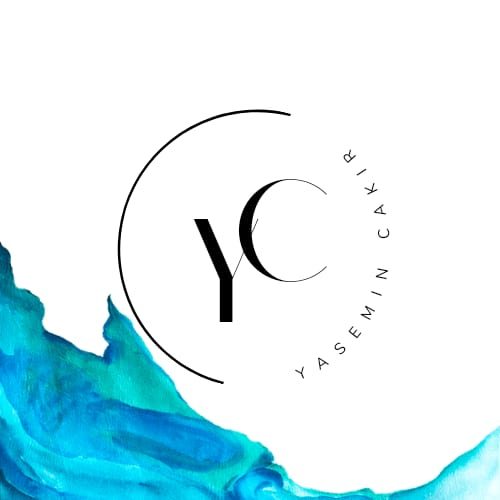
Cannabis and sexual health are both topics that are very much taboo in the society, despite how ‘open’ we think we may be, as soon as it passes the ‘joke’ level and turns into a serious conversation, many seem to shy away from delving deeper into the topics.
Cannabis and the ECS should be provided as basic education in schools I believe, once the age permits the understanding. Sexual health is currently taught to children year 5 and above. Funny (!) because I see children, literal children smoking cannabis and pre-teens pregnant, so is it time we bring these subjects to the forefront and avoid adding to the stigma by creating a safe space to communicate, or do we keep our children away from these topics in hope that they won’t encounter them until they’re of legal age? I know which one sounds better, but I also know which one sounds more probable. Today, I’ll be looking at both by delving further into how cannabis can effect sexual health.
The History of Sexual Health and Cannabis
Cannabis use can be traced back around most of the world from Ancient China, the Middle East, Pre-Colonial Africa and more for the specific use of improving sexual health and fertility.
The most known may probably be Ancient India with bhang. Bhang is a drink made from cannabis leaves, was and still is primarily used for religious purposes and ceremonies such as Holi (Festival of Colour); however was also widely consumed for enhancement of libido, dating all the way back to 500 CE, with the Tantric tradition, which strongly bases its beliefs in bhang around fertility and intimacy.
In Ancient Egypt however; cannabis was used way before this and more for gynaecological health with the Ebers Papyrus, an ancient medical text dated 1550 BCE, cannabis is mentioned for use for women struggling with inflammation and uterine contractions.
In the medieval period of the Islamic World, hashish (a concentrated form of cannabis – slightly sticky and paste like, although solid) was used recreationally and even suggested by some religious scholars with claims that it increased sexual pleasure. Although it always has remained a controversial topic due to religious conflicts, one of the uses at the time did base itself on libido and sexual performance, leading to increased satisfaction.
In Pre-Colonial Africa however; focus was mainly on conception and fertility, with couples looking to conceive, participating in cannabis rituals. These rituals would involve cannabis consumption with the aim to increase sexual desire in partners.
Possibly the oldest dated information relating to sexual health and cannabis can be traced back to Ancient China around 2000 BCE, with Traditional Chinese Medicine suggesting that cannabis nourished the bodies vital energies, thus helping with sexual performance and libido.

The Science Behind it All
Cannabis, particularly CBD, a phytocannabinoid (cannabinoids derived from plants) interacts with the ECS by enhancing serotonin receptor activity, which can reduce anxiety and potentially benefit sexual health as conditions such as vaginismus, which is the involuntary tightening of the pelvic muscle upon attempt of insertion. Additionally, it can provide confidence boosts for those who are struggling with self-identity and allow them to ‘enjoy the moment’ more. It’s easy to see how this may also benefit mental health patients.
Additionally, we know that cannabis can also assist with pain management, making intercourse easier and/or more pleasurable with decreased pain. This can range from rheumatoid pain to chronic struggles such as fibromyalgia and endometriosis and works by reducing inflammation and discomfort.
Some studies and anecdotal information finds that cannabis, especially THC, the psychoactive compound in cannabis, can increase sensation and pleasure and whilst results vary from person to person, again anecdotal information can see that certain strains of cannabis can increase libido across genders.
The Stigma
Coming from a mixed-ethnic background, seeing differences from a very strict Muslim community, to a more relaxed secular one on two polar sides of Turkey, and even here in the UK, I understand why there are stigmas surrounding topics of sexual health; however I have also realised that the less it is spoken of, the less education that is provided, the more sexually violent crimes occur, the more oppression is visible. I have a strong belief that taboo subjects should be spoken of more, rather than silenced to ensure that safety and education is forefront.
Any gender can suffer struggles during intimacy; however as I woman, I believe that pleasure during intimacy is a more taboo subject for us, as well as the LGBTQIA+ community as our pleasure is not as valued as cis male pleasure.
We must first understand the equality of the sexes and appreciate the physiological differences, catering to both.
Sex and intimacy is supposed to be pleasurable for all parties included and the benefits of cannabis for mutual enjoyment and safe satisfaction should not be dismissed.
The Potential Risks
Although CBD and THC, amongst other minor cannabinoids can work to decrease pain and anxiety around or during intimacy, there’s always ‘Too much of a good thing’ and too much THC can be seen to lead to libido suppression, which is why, as I stated previously, to find the right dosage and limitations for yourself, it is always beneficial to be under a clinic and healthcare professional when consuming CBMP’s.
The intersections of cannabis and sexual health deserve more than hushed whispers or avoidance. By openly discussing these topics, we can break down the stigmas that prevent people from exploring safe, effective treatments for intimacy struggles, pain management, and overall well-being.
Understanding the science behind cannabis, particularly its potential benefits for sexual health, empowers individuals to make informed decisions about their bodies.
Ultimately, we must foster environments where people—regardless of gender, background, or sexual orientation—can speak openly about their needs, experiences, and desires without fear of judgment. As with any aspect of health, education is the most powerful tool we have, and by addressing these ‘taboo’ subjects head-on, we can create a future where everyone is free to pursue both pleasure and wellness, safely and without stigma.
Sources
- Abel, E.L. Marijuana: The First Twelve Thousand Years (1980)
- PubMed – History of cannabis and its preparations in saga, science, and sobriquet
- PubMed – Cannabidiol as a Potential Treatment for Anxiety Disorders
